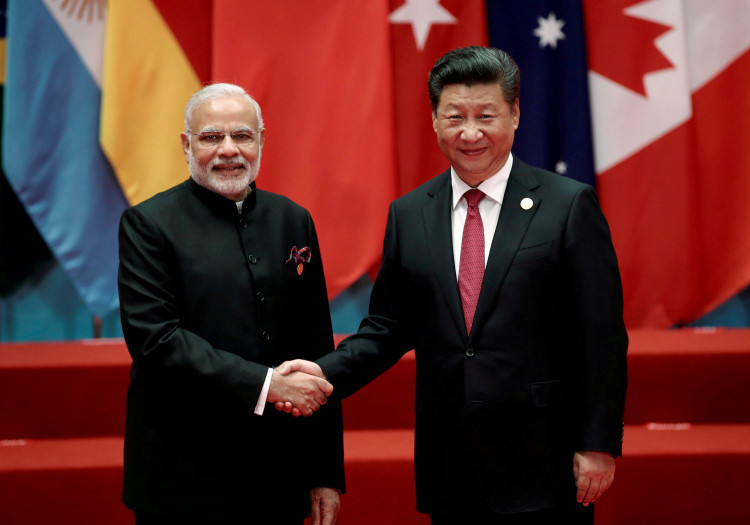Chinese President Xi Jinping and Indian Prime Minister Narendra Modi held their first formal bilateral talks in five years on Wednesday, signaling a potential thaw after years of tensions. The meeting, which took place on the sidelines of the BRICS summit in the Russian city of Kazan, marks a crucial moment in the efforts to resolve the lingering military standoff along the India-China border in Ladakh.
The relationship between the two Asian giants has been fraught with tension since a deadly clash in 2020 along the Line of Actual Control (LAC) in the western Himalayas, which left 20 Indian soldiers and four Chinese soldiers dead. Since then, both nations have bolstered their military presence along the disputed border, with thousands of additional troops and military equipment stationed in the icy region.
The bilateral meeting follows a significant breakthrough earlier this week, when both India and China announced an agreement to restore patrolling rights in the disputed regions of the Depsang Plains and Demchok in Ladakh. The deal is seen as a critical step toward de-escalating military tensions, with both sides agreeing to a controlled and scheduled patrol system aimed at preventing further confrontations along the contested border.
Neither New Delhi nor Beijing has released specific details of the agreement, but reports suggest that the deal will allow both countries to coordinate patrolling activities in a way that reduces the risk of inadvertent clashes. An Indian military source, speaking to Reuters, mentioned that the plan includes a joint schedule for patrolling key contested areas, an arrangement designed to ease tensions without compromising either side's territorial claims.
Modi and Xi's discussions in Kazan come after several years of diplomatic gridlock, during which formal dialogue was minimal despite their participation in multilateral events like the G20 and BRICS summits. Their last substantial summit-level meeting occurred in October 2019, months before the Ladakh crisis erupted. Although they had brief interactions on the sidelines of the G20 in Bali in 2022 and BRICS in Johannesburg in 2023, the structured talks in Russia mark their first formal bilateral engagement since the conflict began.
Diplomatic momentum has been building in recent months, with foreign ministers from both countries meeting in July to discuss ways to de-escalate border tensions. India, in particular, has made it clear that restoring wider political and business relations with China would be contingent upon resolving the military standoff. In the aftermath of the 2020 clashes, New Delhi increased scrutiny of Chinese investments, restricted direct flights between the two nations, and halted the issuance of most visas to Chinese nationals.
China, for its part, has expressed its willingness to work with India to implement the recent border agreements. A statement from Beijing confirmed that both countries had "reached a solution" and that China would "effectively implement" the agreement to reduce tensions along the LAC.
The geopolitical significance of the meeting cannot be understated, given that India and China are not only the world's two most populous countries but also nuclear powers with significant regional influence. Their strained relationship has broader implications for global stability, particularly in Asia, where both nations vie for strategic dominance. Any progress in their bilateral ties is closely watched by neighboring countries and global powers alike.
Modi's participation in the BRICS summit also saw him address other global challenges, including terrorism, climate change, and cyber threats. In his remarks, the Indian Prime Minister called for a unified effort among BRICS nations to counter terrorism and prevent the radicalization of youth. He emphasized the importance of a comprehensive global framework to address these issues, advocating for the long-pending Comprehensive Convention on International Terrorism at the United Nations.
Modi also highlighted the growing financial integration among BRICS countries and lauded the success of India's Unified Payments Interface (UPI). "The UPI developed by India is a huge success story and has been adopted in many countries," Modi said, underscoring the potential of cross-border payments in local currencies to enhance economic cooperation among BRICS nations.






